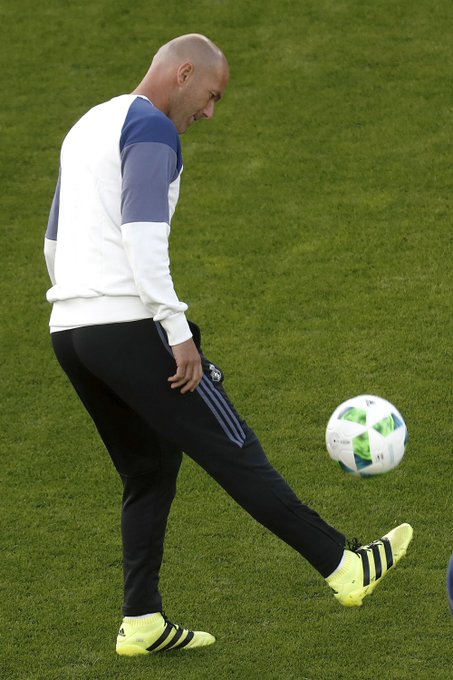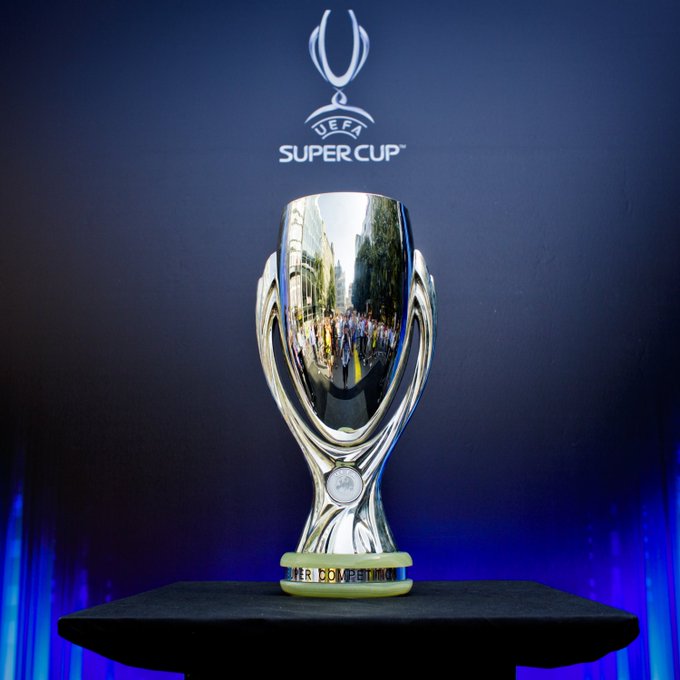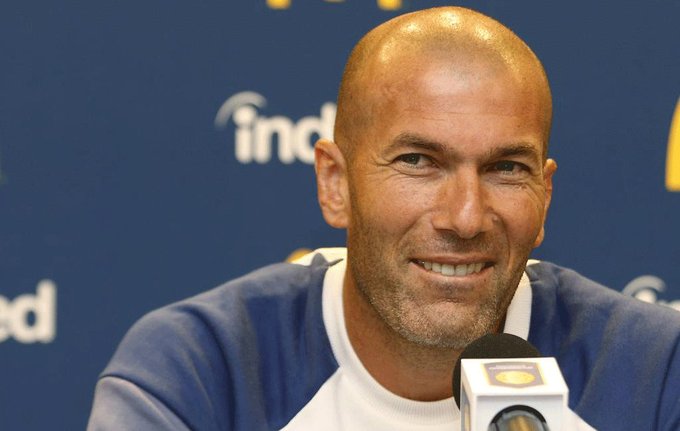
Its classification is competitive, there's a trophy up for grabs and those involved will make all the right noises. But still, we're left with the same old question: Does the UEFA Super Cup matter?
Does any Super Cup matter?
For clarity, that noise you can now hear is the derisory laughter of the cynics for the simple existence of such a query.
To them, a group large in number, these matches are glorified friendlies with tinpot trophies, and in many ways they have a point. But try telling that to Jose Mourinho. Or Claudio Ranieri. Or Zlatan Ibrahimovic.
Indeed, ahead of Real Madrid's meeting with Sevilla on Tuesday night in the UEFA Super Cup, it was striking to observe the intensity of those involved in Sunday's Community Shield, England's version of the concept.
On the sidelines at Wembley, Mourinho delivered one of those familiar point-and-march routines dripping with triumphalism for Manchester United's opener. Ranieri then went down the awkward skip-and-high-pumping-fists route for Leicester City's equaliser, which we'll happily allow because he's delightful. And later, Ibrahimovic was also pretty excited about his winner, afterwards counting the Community Shield as the latest in his long list of prized trophies.
"My 31st," he said to BT Sport just after the final whistle.
Admittedly, the game as a whole didn't hit any great heights, and no one will have left euphoric nor inconsolable. But perhaps what Sunday hinted at was that Super Cups can matter at certain junctures—junctures like one at which a team is trying to reacquaint itself with winning; or at which a side is needing to reinforce an idea; or at which new momentum is necessary.
Or at which a club is looking to confirm a sense of progression—just like Real Madrid right now.


Regularly when the Champions League winners of the previous season reach the UEFA Super Cup, they do so following sustained periods of excellence. On the back of rampant stretches, their collective identities are firmly established, their conviction strong—Manchester United in 2008; Bayern Munich in 2013; Barcelona in 2009, 2011 and 2015.
It's in such circumstances that the season's curtain-raiser lacks significance for its new European kings. But in 2016, Madrid's position is very different.
Though Zinedine Zidane's men enter Tuesday's meeting with La Undecima to their name, the current identity of the Frenchman's team is still new. Last season, Madrid's late surge to league contention and Europe's top prize was more last-minute discovery than gradual development, their campaign a bit like a 1980s Bond film: a mess for most of the way before a happy ending (no emoji needed).
Few will need reminding that the club's brief stint under Rafa Benitez's management in the season's first half was a political shambles, and yet the issues prolonged well after his sacking. In late February, the typically measured Zidane was fuming following defeat to Atletico Madrid in the derby.
"Before you ask, the league is over," he told the post-match press conference that afternoon. "I don't know if it is a result of attitude. Probably the football," he added. "Next year we may have to change. There will be changes."
It was just two weeks later when, following an anaemic display against Las Palmas, Zidane went even stronger with his assessment: "Playing like this we won't go anywhere."
Given Madrid's flourish thereafter, it's easy to forget just how recent that night is. There in Gran Canaria, the would-be European champions were fractured and directionless, riddled with major systemic flaws in mid-March—barely two months out from the Champions League final.
That they got their act together in those two months speaks volumes for Zidane's work, but this is still a team needing to reinforce a sense of progression. The talent is there, and so is the depth, but the encompassing idea isn't ingrained in them like it often is for teams in their current position.

So the UEFA Super Cup holds context in this instance, then.
For Zidane and Co., Tuesday's outing is their first opportunity to use the platform they built for themselves in April and May, a chance to show rare continuity from one season to the next.
In that, exhibiting the same back-to-front balance that was unearthed in those aforementioned months will be non-negotiable. As will the need to display the same urgency to press and win back possession; to maintain stability in selection across the defensive line; to prioritise shape and functionality over heavy doses of individualism.
It won't be easy, primarily because Tuesday's team won't be the team.
Against Sevilla, Madrid will be without Cristiano Ronaldo, Gareth Bale, Toni Kroos, Pepe and Keylor Navas. Karim Benzema, despite his inclusion in the squad, could also be missing given that he didn't complete a single minute in pre-season.
"I'm not worried by the players that aren't available," Zidane said on Monday. "This [rest] is what the players need following on from the Euros and after a very tough season."
It's natural to question, then, whether such absences chip away at the notion that this particular Super Cup matters to a degree. This won't be the unadulterated Real Madrid—the capable-of-anything, 100-percent-chilli version we expect to see in the coming months.
But that's one of the key points: Madrid's late surge last season was built on the sharing of responsibilities as much as star quality.
In the campaign's final months, Casemiro came in to underpin the team's collective stance. Lucas Vazquez's goals and assists prolonged their title fight in the league. Dani Carvajal grew in importance by the game. Sergio Ramos found form where there hadn't been any. Isco played a key role in extra time in Milan.
It's that evenness in contribution that needs carrying over into Tuesday against Sevilla—an outfit being designed to unsettle its theoretical superiors.

Denis Doyle/Getty Images
Following three straight Europa League triumphs, the Andalucians are suddenly following a different path ahead of 2016-17.
To replace the departed Unai Emery, the firebrand Jorge Sampaoli has arrived at the Ramon Sanchez-Pizjuan this summer as well as a raft of new faces, signalling a major shift in emphasis.
Thanks to his work with Universidad de Chile and the Chilean national team, Sampaoli has built a reputation as a unique figure and a challenger to the status quo. An advocate of extremely attacking systems, the Argentinian gets his teams playing the way he talks: fast, intense, focused on rebellion and smashing through ceilings.
"We must be brave and defy Real Madrid," he said on Monday. "I won't accept being dominated on the pitch in terms of play. We are preparing for a match in which we have the initiative."
Saying that is one thing, though; doing it is another.
Like Emery before him, Sampaoli is facing the challenges that come with major squad upheaval. Already this summer, nine have arrived and 10 have gone, some key players among them: Kevin Gameiro, Grzegorz Krychowiak and Ever Banega.
And yet, this is what Sevilla do. "We're used to seeing team-mates coming and going. Despite all of that we always maintain our identity,"said new captain Vicente Iborra on Monday. This time, there's also a certain look about them. One of volatility. Of an explosive capacity.
"[Madrid] won't be comfortable tomorrow," added Iborra.
That sense of defiance adds to the feeling of this Super Cup holding significance in a way it sometimes doesn't: In Norway, Sevilla will be out to forge the beginnings of a brand-new era; Madrid are looking to extend one that's only recently begun.
Tuesday's clash won't only be competitive in classification.










No comments:
Post a Comment